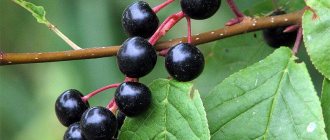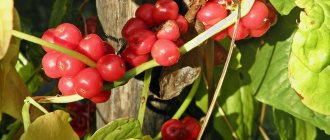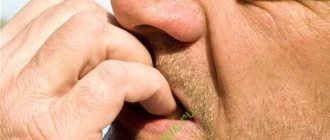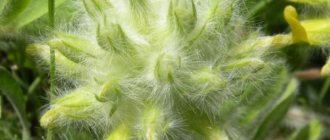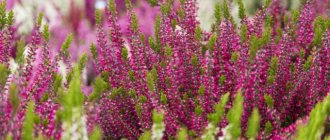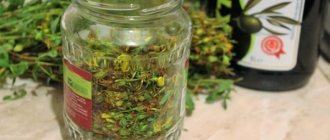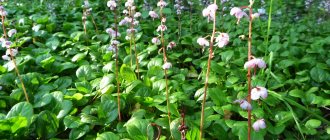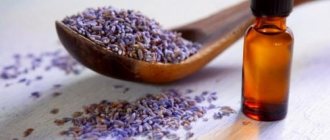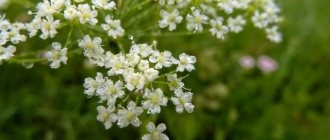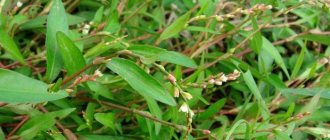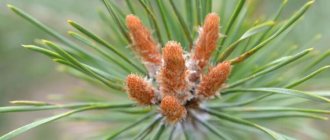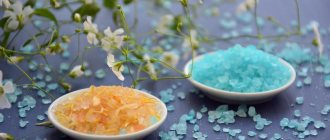Juniper fruits are an excellent spicy seasoning, the pine aroma of which decorates many dishes and drinks. But the berries are known, no less, as a medicine that helps with arthritis, kidney pathologies and even nervous disorders. Juniper berries - medicinal properties and contraindications, methods of use in folk medicine and cosmetologists became the topic of this article.
Biology
Juniper itself is a coniferous shrub that can grow up to 3 m in height. This culture is characteristic of the Northern Hemisphere; it can be found in Asia and even in North Africa. For successful growth, juniper needs temperate and tropical climate conditions. It prefers to grow on dry slopes.
Juniper has a straight trunk, spreading branches with prickly needles. The berries of the plant are similar to those scales that appear on small cones. The fruits can be either green or dark brown, but this depends on their degree of ripeness.
Harvesting the fruits is possible only after they are fully ripe, when they turn blue-black. Typically, harvesting begins at the end of August and ends at the end of October. This is done like this: lay thick fabric or paper directly under the bush, and then shake the bush. The berries that have fallen are ripe - you can send them for drying. Dried juniper fruit should only be stored in a good wooden container that closes tightly. Dried berries will last for 2 years.
Composition, value and calorie content of juniper
Juniper is an evergreen shrub from the Cypress family. It belongs to long-lived plants. In total, there are about 60 varieties of juniper. But the most widespread are Cossack and ordinary. The fruits of the bush have a dark blue color and a bright pine aroma. They contain the following substances:
- acetic, formic and malic acids;
- essential oils;
- ascorbic acid;
- manganese;
- borneol;
- tannins;
- camphene;
- iron;
- copper;
- flavonoids;
- pinene;
- terpineol;
- aluminum;
- resin.
Flavonoids have the ability to slow down aging and prevent cell destruction. In addition, they have a powerful anti-inflammatory effect. Ascorbic acid activates the body's defenses, thereby preventing the development of viral and infectious diseases. Thanks to its mineral content, juniper berries can be used in the treatment of ailments of the cardiovascular and nervous systems.
Juniper berries do not contain proteins or fats. However, they contain 31 g of carbohydrates. The calorie content of 100 g of berries is 116 kcal.
In ancient times, juniper was credited with a lot of magical properties. Note! Juniper is also popularly called juniper.
Chemical composition of juniper berries
100 g of berries have a calorie content of 116.5 kcal. There are no lipids or proteins in the product, and carbohydrates – 31 g in the same 100 g.
What is juniper berry rich in:
- vitamins C and E;
- minerals such as manganese, calcium, zinc, copper and iron;
- organic acids;
- pectin;
- fiber;
- resins and wax.
The essential oil of the medicinal product is especially valued: it has a pronounced phytoncidal effect. Even in those places where juniper grows, it is easier to breathe, the air is clean and fresh. That’s why people with respiratory problems love to walk in these places .
Juniper berry extract: benefits and harm
Juniper berry extract is considered no less useful than decoctions and tinctures. It contains at least 170 useful substances, including camphor, terpineol, kaphen, etc. These strong solvents help remove deposits of salts and toxins from the body.
Juniper extract is also known for the following beneficial properties:
- bactericidal;
- anti-inflammatory;
- diuretic;
- choleretic;
- warming;
- painkillers
It has a rapid warming, anti-inflammatory and analgesic effect, causes vasodilation, which helps reduce arterial and intracranial pressure, relieve pain and fatigue from muscles, ligaments and joints, and increase their mobility.
Juniper extract is widely used for:
- Prevention of spring hypovitaminosis.
- Treatment of asthenic conditions.
- Reduce foot sweating, eliminate fungus and unpleasant odor.
- Therapy for arthritis, arthrosis, osteochondrosis, rheumatism, neuralgia.
- Prevention of problems of the cardiovascular system: atherosclerosis, heart failure, weakened vascular tone.
- Treatment of respiratory tract diseases: persistent cough, bronchitis, pneumonia.
Medicinal properties
There are many beneficial properties of juniper fruits, and they affect different areas of healing and treatment.
Juniper berries (fruits)
10 main properties of juniper berries in folk medicine:
- Powerful diuretic. Tinctures and decoctions are made from the fruits of the plant; they will be useful for people with a long-term inflammatory process in the genitourinary system. This remedy is also used to solve the problem of kidney stones, against increased swelling or disinfection of the urinary tract.
- Appetite stimulation. Berry-based products are useful for people who are recovering from long-term illnesses, who still have little strength and lack of appetite.
- Calms the nervous system. For neuroses and sleep disorders, the use of folk remedies of juniper will give quick results.
- Increases the viscosity of sputum. This allows you to quickly clear the airways of mucus during a prolonged cough, ARVI, flu, etc.
- Relieves pain in joint diseases. Juniper berries are used for gout, arthritis, chondrosis and other diseases of the same profile.
- Treats skin with dermatitis, eczema, scabies. This is due to the antimicrobial properties of juniper.
- Sanitizes the vagina. Women use a decoction of berries to combat inflammatory processes in the genitals.
- Aromatherapy during critical moments of menopause . A woman's health during menopause should be under special control. Many ladies note that even just breathing in the aroma of berries is good for the nervous system. You can chew a handful of berries from time to time - this is also useful.
- Juniper oil is useful for weight loss . Massaging the skin of problem areas with a healing composition helps to quickly cope with cellulite.
- A decoction of berries helps men cope with urethritis and infectious prostatitis . Juniper is also used in the complex treatment of pancreatic adenoma.
Contraindications
Long-term use of a medicinal product can cause harm. Over time, active substances accumulate in the body, oversaturating it and causing poisoning. Usually, after two months of using fruit-based preparations, a break is taken.
- There are also contraindications for use:
- acute form of kidney and urinary tract disease;
- age up to 6 years;
- exacerbation of gastrointestinal ulcer;
- acute phase of gastritis and colitis.
Important! You cannot use medicinal raw materials during pregnancy - the product has abortifacient properties.
Contraindications for juniper berries
A medicinal product should be limited in use if the complex of therapeutic agents is extensive. The pharmaceutical burden affects the patient’s well-being, and any new drug can be dangerous due to its activity. Therefore, with large lists of medications that the patient is taking, the inclusion of any new, even folk remedy, must be agreed with the doctor.
When are juniper fruits contraindicated:
- during pregnancy and pregnancy;
- in case of severe, severe kidney pathology or advanced inflammation of the bladder;
- for colitis, gastritis, inflammation of the duodenum.
You should also listen to these comments:
- uncontrolled use of berries, exceeding recommended dosages can cause irritation of the kidney parenchyma, which can even lead to bleeding;
- Only common juniper berries are acceptable for treatment; other varieties are not actively used in folk medicine, their safety is controversial.
Not all juniper varieties are equally beneficial. This video explains how to distinguish a beneficial plant from a poisonous one.
And, of course, individual intolerance to berries and the development of an allergic reaction cannot be ruled out.
Juniper berries: medicinal and beneficial properties
The beneficial properties of juniper berries have long been used in traditional and folk medicine.
After ripening, juniper berries are collected (usually in the fall) and dried. In this case, drying should be done naturally. Only in this case will the amount of nutrients in the fruit be preserved.
Juniper berries are valued for their unique healing properties, including:
- bactericidal;
- antiseptic;
- anti-inflammatory;
- diuretic;
- pain reliever;
- tonic;
- expectorant;
- regenerating;
- laxative.
Use of berries: folk recipes
From decoction to ointment - what can be done from the healing fruits of heather (as juniper is also popularly called).
Decoction of juniper fruits
Recipe: Pour 2 tablespoons of berries into 250 ml of boiled water. Cover the container tightly with a lid. After this, send it to a water bath and cook for about 15 minutes over low heat. Remove the saucepan, wrap it in a towel, and let cool. Strain the composition.
How to take: three times a day, take a small sip.
What it helps with: improves the functioning of the gastrointestinal tract.
Juniper berry infusion
Recipe: 1 teaspoon of dried fruits, pour 250 ml of boiled water. The mixture is supposed to be left in a thermos for 1 hour. Then filter and divide into 3 parts.
How to take: gargle with infusion for ARVI, laryngitis, influenza and other related diseases. Do this after eating.
What it helps with: infectious diseases, the symptoms of which are manifested in sore throat, redness of the mucous membranes of the throat, swelling, etc.
Tincture
Recipe: Crush 10 berries with a rolling pin and pour in 0.5 vodka. Place this mixture in a glass container and let it sit for 2 weeks in a dark place. Strain. If the product tastes harsh, you can soften it by adding sugar syrup. If you do this, the tincture should stand in a dark place for another 2 days.
How to take: The tincture can be rubbed on sore joints. Dissolve a few drops (5-8) in water and take for men with potency problems, and for women with cycle failure. Since the age, weight, and general health of patients are always different, it is better to coordinate the individual dosage with your doctor.
What it helps with: cycle failure in women, erectile dysfunction in men, rheumatic pain, relief of bile excretion from the body.
Tea
Recipe: 1 tablespoon of chopped dried berries, pour 1 glass of water and cook for 30 minutes. Add sugar to the finished drink (or honey to the cooled drink).
How to take: no more than a small cup once a day.
What it helps with: chronic fatigue, irritability, sleep disturbances.
Juniper berry ointment
Recipe: Soak 1 cup of ripe berries in water and leave overnight. Drain the water, crush the fruits, and place in a clean container. Pour this raw material with 2 tablespoons of any vegetable oil and place in a double boiler. Bring water to a boil, boil for several minutes. Remove from heat. After judging, separate the oil from the berries. Add 3 tablespoons of beeswax to the oil. Place in a water bath until the wax dissolves. Keep the finished product in the refrigerator.
How to take: rub into problem areas, massage, morning and evening.
What it helps with: joint and muscle pain.
Application in cosmetology
Juniper berry extract is used in cosmetology as a bactericidal astringent and as a flavoring agent. It is also considered a good antiseptic and also demonstrates pronounced tonic properties. Berries stimulate the skin to actively renew itself and help remove excess fluid from the tissues. The extract is known to stimulate hair growth.
Juniper berry products help fight dandruff
A simple but effective recipe: fresh heather berries must be carefully ground and mixed with lard. This mixture is heated in a water bath for an hour, then filtered and cooled. It should be rubbed into the scalp daily, allow 10 minutes for this. And so on for a whole month. A very effective remedy against baldness and dandruff, stimulates hair growth.
